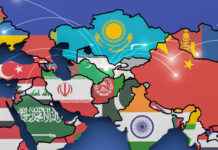Now that we are approaching a Diada marked by the critical dispute between the two parties of the Executive of Pere Aragonès, the provisional government of Tarradellas after returning from his 38 years of exile in France constitutes an exercise in nostalgia. Nostalgia that a management capacity with limited means and skills, the ability to weave pacts, political wood. It is the lesson that, with today’s eyes, the viewer who wishes to see this Friday the documentary ‘Tarradellas, govern d’unitat’, which was presented yesterday in Barcelona and will be broadcast for everyone this Sunday on the Xarxa de Televisions, can learn Locals.
The documentary, directed by Albert Solé and Joan Salicrú, is a production of Clack and Minimal Films, in co-production with the Local Audiovisual Network and RTVE, and with the support of the Diputació de Barcelona, ??and focuses on the unity government that presided Tarradellas between 1977 and 1980 with councilors of ERC, PSC, PSUC, UCD and CDC. It is a period that, according to its directors, has been the subject of little study despite constituting an important and intense period for the political and social development of Catalonia.
The documentary is based on the testimony of some of the most relevant political leaders of the time, such as former president Jordi Pujol, who was part of that provisional government; Narcís Serra, who was councilor of Territorial Policy and Public Works of the PSC, or Ramon Espasa, councilor of Health for the PSUC and promoter of the health map of Catalonia. It also includes the impressions of Miquel Roca, one of the fathers of the Constitution; such outstanding figures of the transition as Rodolfo Martín Villa, the co-founder of Alianza Popular Manuel Milián Mestre and journalists and historians such as Pilar Cernuda and Joan Esculies.
The report goes through the work of Tarradellas since his return to Spain. It dwells on the configuration and work of the first Government after the dictatorship, made up of seven technical ministers and five politicians, “those of coffee with milk” as Tarradellas baptized them for their coffee habit in their meetings, which despite not having attributions and Being practically devoid of powers, he had the courage to carry out a commendable work of government that still endures. That multicolored government was the one that first introduced Catalan in schools, created Ferrocarrils de la Generalitat and drew up the health map of Catalonia.
It was a Government without attributions in such a way that its work had to provide a certain symbolism to dress the self-government that would come. And it was a government with few financial resources, as evidenced by the fact that the Generalitat’s budget was 200 million pesetas while that of the Barcelona Provincial Council was 9,000 million. Tarradellas was the president of both institutions, giving rise to the paradox that he had more power as president of the Diputació than as president of the Generalitat.
But the documentary extends until the death by elections of that Executive. At the end of 1979, relations between Tarradellas and the Catalan parties that formed his government hit rock bottom as a result of the Statute and the clashes with Pujol’s Convergència were important. The unit, forced but efficient, had an expiration date: the elections of March 20, 1980, despite the fact that the documentary shows that, deep down, Tarradellas would have liked to continue as president.
The discussions on the Statute were decisive. Tarradellas was in favor of fewer but clearer powers, while the parties wanted many powers. When reading the final wording of the law, he warned of the many disputes that would plague relations between the governments of Spain and Catalonia. “This was the Statute that President Suárez wanted”, he came to say. In addition, it establishes that the president must be a deputy and be elected by the Parliament, something that bothers him deeply because if he wanted to repeat himself, he should stand for election. “It’s over. After 60 years of politics, I deserve a certain break”, explains Tarradellas in an interview included in the documentary.








